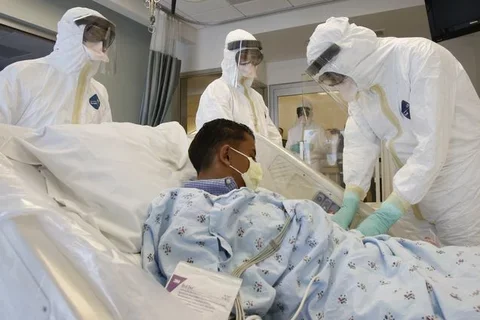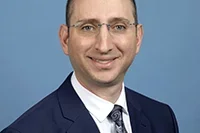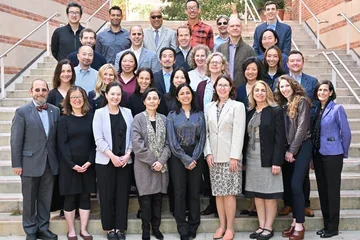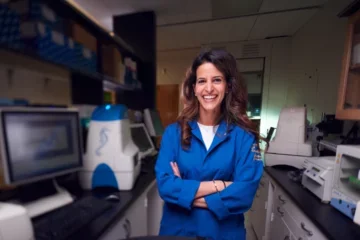What Does an Infectious Disease Doctor Do?
The Behind-the-Scenes World of ID

A Day in the Life of Dr. Daniel Uslan, Infectious Disease Doctor
Infectious diseases, such as SARS and Ebola, make good headline fodder.
While infectious disease (ID) itself gets the media spotlight, infectious disease specialists do critical behind-the-scenes work involving topics—such as immunizations and antibiotic resistance—that don't make the headlines.
Daniel Uslan, MD, associate chief of the Division of Infectious Diseases at the David Geffen School of Medicine at UCLA, specializes in this type of behind-the-scenes work. As an infectious disease specialist with a lifelong passion for ID, Dr. Uslan directs his interests in problem-solving a variety of infections.
"I was always fascinated by the complex variety of problems that microscopic organisms can produce," he says. "Our patients have such a diverse set of issues; we may be treating one person with meningitis, [and another one] with tuberculosis, a bone or blood infection or malaria."
Some patients are critically ill in the intensive care unit (ICU) and only require one visit. Others are long-term patients with chronic infections, such as HIV. But regardless of the situation, Dr. Uslan aims for the same outcome.
"In general, our patients are curable, and it's very rewarding to see a very sick patient, figure out what's wrong with them, and get them better," he says.
Preventing Infection

Infection treatment, though crucial, is only one side of the coin. There's also infection prevention—a role Dr. Uslan plays at the UCLA Medical Center, Santa Monica, as Hospital Epidemiologist.
"Infection prevention ensures we minimize the spread of infections in healthcare settings," he says. "We're involved with everything from hand hygiene to investigation of outbreaks and preparing for emerging infections, such as Ebola."
Luckily, immunizations make this piece of the ID puzzle easier, but a shift in public opinion threatens that progress.
"Modern vaccines are among our most effective strategies to prevent disease," Dr. Uslan says. "[But] unfortunately, as rates of immunization have declined in recent years, we are seeing emergence of rare diseases, such as measles, mumps and pertussis (whooping cough)."
The Trouble with Antibiotic Resistance
The declining vaccination rate comes with a rise in antibiotic-resistant disease, so it's clear that every infectious disease specialist faces a significant challenge.
"Overuse of antimicrobials is a major public health threat, [because] the more widely antibiotics are used, the more likely it is that resistant strains of microorganisms will emerge," Dr. Uslan says.
That's why—in addition to his daily cases, epidemiology roles and research projects—Dr. Uslan leads the charge in responsible antibiotics use as the director of the UCLA Antimicrobial Stewardship Program.
"Our goal is to improve patients' quality of care by ensuring that every patient gets only the necessary antibiotics, at the right dose and duration," he says.
Great Challenges, Rich Opportunities
Indeed, the challenges are as great as the opportunities are rich for ID physicians.
"ID is an incredibly rewarding, diverse specialty that will be increasingly in demand over time," he says. "New, potentially dangerous bacteria, viruses, fungi and parasites emerge every year."
As a result, "a career as an infectious disease doctor can lead to one in public health, primary care, hospital-based medicine, the pharmaceutical industry or even public policy and government," he added.
For those considering ID, Dr. Uslan recommends a few key qualities:
"The best ID specialists are thorough, detail-oriented, ask a lot of questions and have to integrate a great deal of information—with excellent communication skills," he says. He adds that their post-medical school training includes a three-year residency in internal medicine, plus another two or three years of specialized training in infectious disease.



